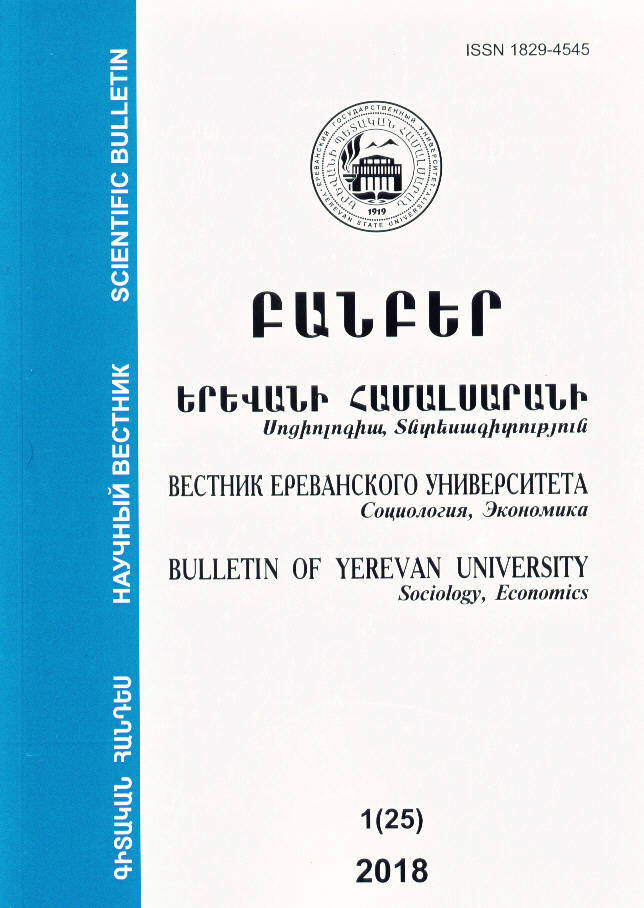Habitus of Confidence and Identity
DOI:
https://doi.org/10.46991/BYSU:F/2018.9.1.039Keywords:
identity, trust, habitus, habitus forms, interaction practices, social relationsAbstract
The problem of identity has become relevant at present. Being formed in a social environment, identity gives one a sense of the significance of its existence, becomes a means of unification, and provides the solidarization at the macro and micro levels of society. As a
multifaceted phenomenon, identity is studied in various fields of science. In sociology, the attention of identity is given to various concepts, among which the structural constructivism
by P. Bourdieu can be distinguished. Identity is based on the classification of entities each other’s interaction, on the identification of identical practices. At the base of the identical practices are similar principles of their creation. The concept of habitus provides an analytical model for studying and identifying the principles on the basis of which the interaction practices are created. In our case, as a habit, we consider the trust and the structures in which it is formed. Family structures and friendly networks act as such. To assess the formation of the habitus of trust in family structures, we believe it is possible on the basis of studying the opinion of respondents regarding the degree of interpersonal trust. The data indicate a high prevalence of this principle. A number of practices confirm this. Among them, the friendship and trust of friends, and seeking help in difficult situations.
Downloads
Published
Issue
Section
License
Copyright (c) 2021 Bulletin of Yerevan University

This work is licensed under a Creative Commons Attribution-NonCommercial 4.0 International License.





